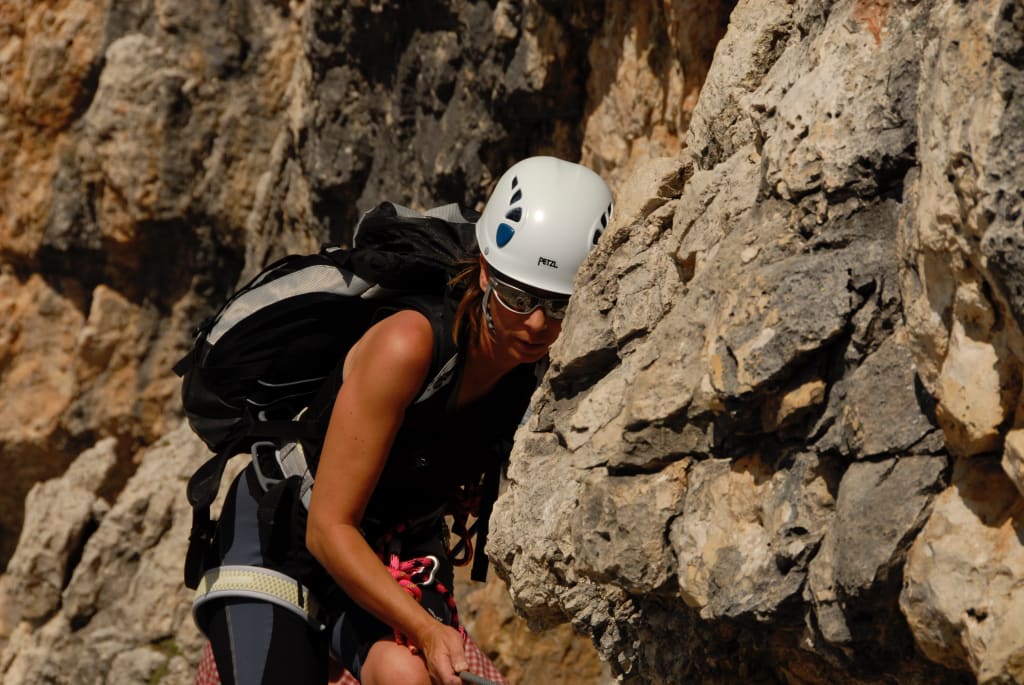Concussions Facts Active Bodies Should Understand
Athletic, active or physical individuals should understand the damages caused by the most common head injury: concussions.

UPMC Sports Medicine points out that the world sports and general recreation faces over 1-3 million cases of concussions per year. Sports ranging from football to women's soccer are prone to head and brain injuries that could result in life-long damage and disabilities. On top of that, 15% of young high school students involved in athletics had experienced a concussion. 6% of these students have received two or more.
Athletes and hobbyists who enjoy recreational activities must understand that rigorous physical work can risks a head injury.
Here are a few quick facts to which new and seasoned athletes should understand about the most common sports related head injury: concussions.
Take the Time to Heal
Yes, time off the field or putting the brakes on your physical routine can be a difficult pill to swallow for some serious athletes.
But for active individuals who are committed to activities that risk brain injures or head trauma must realize that a concussion can have severe life-changing effects if they occur multiple times in such a short period of time. Actually, in some rare cases, an initial concussion could potentially lead to lifelong damage, depending on the severity.
Understand that risking another head injury immediately after a concussion can lead to permanent developmental issues or worse, death. So the more you wait the better.
A qualified trainer or doctor would recommend about a month away from physical contact to prevent further head trauma or any prolonged damage.
Not All Concussions Heal at The Same Time
According to the law firm of Knapp & Roberts, brain injury statistics show that 90% of concussions heal in the matter of weeks. But there is a small percentage of cases where concussion symptoms do not heal over a short period of time. This is called Post Concussion Syndrome (PCS). This is when symptoms persist for about two to three months or more.
Do Not Ignore the Symptoms
Concussion symptoms might feel like a headache, dehydration or common fatigue from being worked. But keep in mind, although minor concussions could have very mild symptoms, you should understand what the signs of a concussion in order to prevent one from occurring soon after.
Pro athletes, student athletes, fitness enthusiasts or fitness biffs should be aware of the following symptoms after being hit on the head, or seeing someone receiving the same trauma. These common signs can help indicate the possibility of a concussion:
- Dizziness & confusion
- Headaches
- Nausea and vomiting
- Fatigue or sleepiness
More severe cases of concussions include the following:
- Ringing in ears
- Loss of consciousness
- Unresponsiveness
- Cannot recall the incident
- Changes in taste and smell
- Long term psychological changes
Protect Thy Head
Most contact sports Include the standard issue gear to protect the head from any serious damages. For anybody, whether you are a skater, motorcycle rider, zip-liner or snowboarder, protect the head and always wear a helmet for dangerous activities that risk the chances of high impact or collisions.
Back on the subject of standard issue gear. In most high impact sports like hockey or football, the majority of issued headwear risks the event of a concussion. For serious athletes involved in contact or extreme sports consider going the extra mile and apply safety liners that help reduce the chance of a concussion .
Every year, an estimate of about 3 million people have suffered from a traumatic brain injury. These injuries are a significant cause of physical disabilities, phycological disorders and death in the United States. Both athletes and non athletes should understand the risks and dangers of these injuries in order to prevent them from occurring or prevent them from doing serious damage.
About the Creator
Zack Monroe
I blog. But when I'm not blogging I'm spending my time reading, running and spending money on things I don't need






Comments
There are no comments for this story
Be the first to respond and start the conversation.